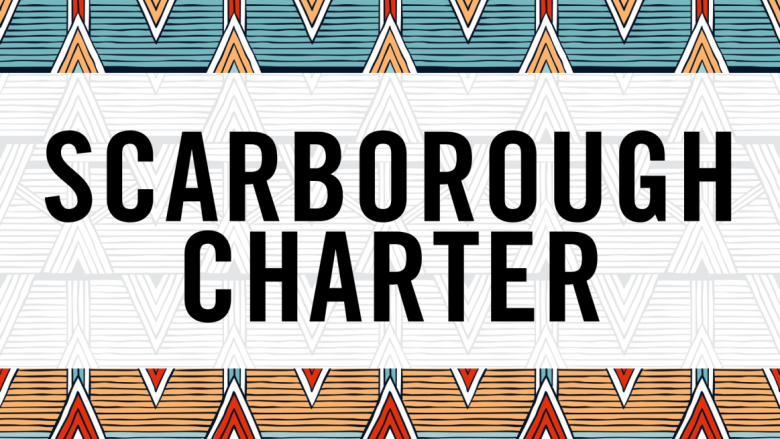
OCAD U signs historic Scarborough Charter on Anti-Black Racism
On November 18, OCAD University joined with more than 40 Canadian universities and colleges to sign the historic Scarborough Charter, which outlines a national plan of action to fight anti-Black racism and to promote Black inclusion.
“By signing the Scarborough Charter, OCAD U reaffirms its commitment to taking meaningful action to address anti-Black racism and to promote Black inclusion, working in collaboration with our colleagues in post-secondary education,” says OCAD U President and Vice-Chancellor Ana Serrano.
The signing of the Scarborough Charter on Anti-Black Racism and Black Inclusion in Canadian Higher Education is an essential part of OCAD U’s broader work to advance the principles of equity, diversity and inclusion, outlined in the University’s current Academic Plan.
Among the initiatives undertaken by OCAD U to promote Black inclusion are the Black faculty cluster hire, the first of its kind at an art and design university in North America; the creation of a Black Student Counsellor/Practice Lead position; and the creation of the Centre for the Study of Black Canadian Diaspora in March 2021, led by Dr. Andrea Fatona, a Tier 2 Canada Research Chair in Canadian Black Diasporic Cultural Production.
“OCAD U will continue to create opportunities for engagement and dialogue on how we can remove structural barriers to equity and inclusion, and advance and support the members of the University’s Black community,” said Serrano.
About the charter
The charter is the result of a year-long collaborative process that started during the first National Dialogues and Action for Inclusive Higher Education and Communities held in October 2020. The two-day national forum focused on anti-Black racism and Black inclusion in Canadian higher education.
Following the forum, an inter-institutional committee drafted the charter based on the perspectives, insights and conversations that took place. In March 2021, partner institutions began consulting with their own communities and institutions for their feedback and input on the charter, a process that was completed this past summer.